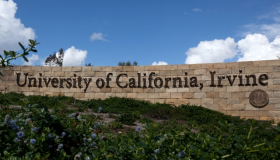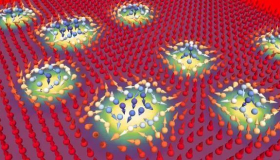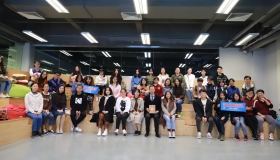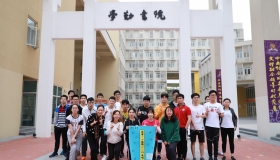CUHK-Shenzhen Plans to Enroll 216 Students in Guangdong This Year
On June 12, nearly 1,800 students took the 631 Comprehensive Assessment Examination (Guangdong) of The Chinese University of Hong Kong, Shenzhen ('University'), competing for 180 seats. In addition, The University will continue to implement the “Dual Enrollment" in Guangdong and 36 more students (11 liberal arts students and 25 science students) will be enrolled simply through Gaokao, also known as the National Higher Education Entrance Examination. Therefore, a total of 216 Guangdong students will be enrolled at CUHK-Shenzhen.
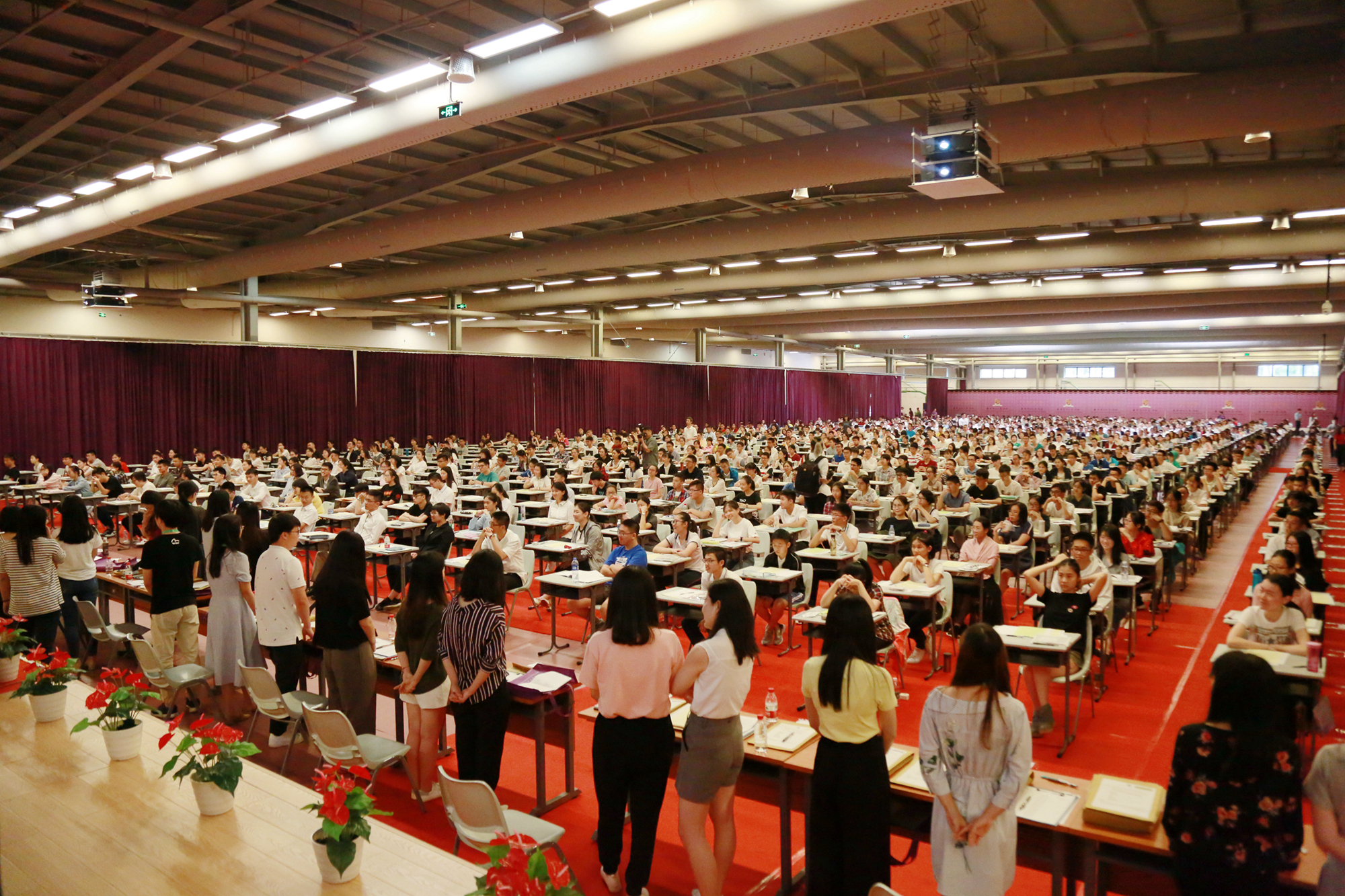
The 631 Scheme is an innovative scheme to enroll students according to their scores in 3 examinations, namely, Gaokao (account for 60%), the University's entrance test (30%) and high school academic level test (10%). In 2018, the Comprehensive Assessment Examination (University's entrance test) is still divided into two parts: written examination and interview. The written examination consists of three tests: Chinese writing, English writing, and analytical questions; the interview section is conducted in the form of English group interview with six students.
According to some candidates' recollections, interview questions include whether the use of mobile phones will have an impact on longevity, whether building a city should preserve old buildings, and whether a great point of view comes from personal thinking or discussion with people. Some topics in the Chinese writing questions examine students' perceptions of traditional Chinese culture, such as asking for a comparative analysis of Li Bai's "Dapeng Fu" and Du Fu's "Carving Fu" (Fu is a literary form). English writing questions are closer to life and require students to talk about the factors that bring happiness to life, or those who influence their choice of university. The analysis questions are newly added in this written test and are closely related to the new situation in the Guangdong region. For example, students are required to compare the development and prospects of the Guangdong-Hong Kong-Macau Greater Bay Area and other bay areas in San Francisco and Silicon Valley in recent years.
The questions bank of the Comprehensive Assessment Examinations was built by a pool of global experts. Therefore, students in Guangdong, Zhejiang, Shanghai, and Shandong are answering different questions. Furthermore, the written examinations and interview questions for students in the same examination room are also different. Questions in the interview examination room are updated every hour to ensure the diversification of the questions and the fairness of the examination.
Candidates generally believe that although the exam is a bit difficult, it will not be out of touch with the knowledge learned in high school and has higher requirements for individual's cultural quality, thinking and perception of daily life and independent thinking ability. The comprehensive assessment mainly assesses students' observation ability, expression ability, Chinese and English writing ability, and comprehension and analysis ability that are not involved in the National College Entrance Examination or that are difficult to be shown in just one exam. Prof. Xu Yangsheng, President of the Chinese University of Hong Kong, Shenzhen believes that students’writing ability is very important. From the writing, it can be seen that if a person processes the ability of critical thinking. Apart from examining writing skills, it is more important to examine students’ mindset. CUHK-Shenzhen values students who can independently embrace themselves, society, the world, and life with critical thinking.
In 2018, CUHK-Shenzhen implements the "Dual Enrollment" in Guangdong, Zhejiang, Shanghai, and Shandong, which means that the comprehensive assessment enrollment is in parallel with the traditional Gaokao enrollment. The University allows candidates to freely choose the examination site. On June 12th, some candidates from Zhejiang, Shanghai and Shandong came to Shenzhen to take the examination. In 2018, after strict screening and qualification review, about 4,500 candidates took the comprehensive assessment exams in Guangdong, Zhejiang, Shanghai and Shandong.
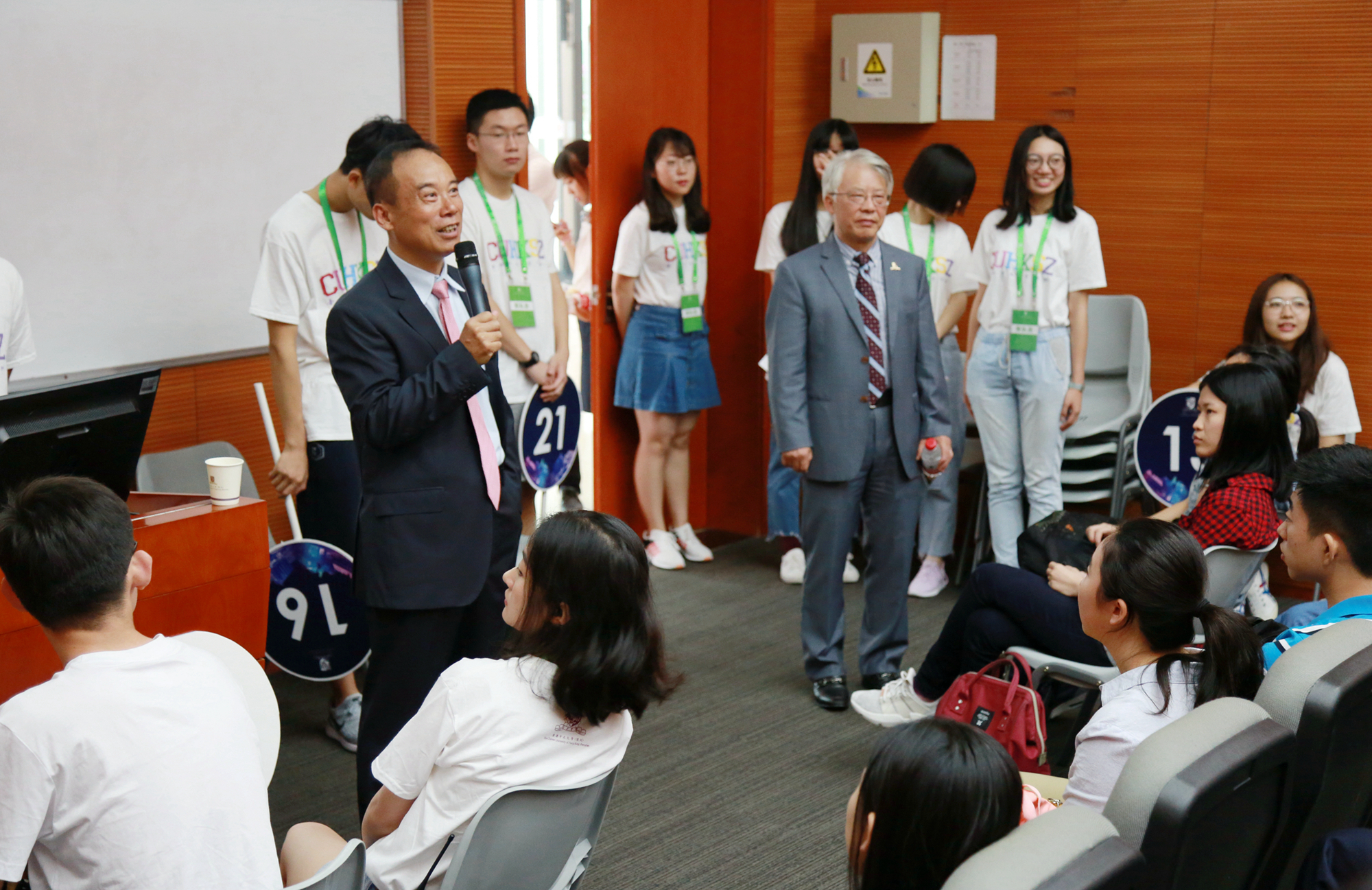
14 undergraduate programmes are available for enrollment in 2018 with 2 newly-added programmes of Biomedical Engineering and Financial Engineering
In 2018, the Chinese University of Hong Kong, Shenzhen plans to enroll approximately 1,100 students across the country for its 14 undergraduate programmes, including Finance, Economics, Global Business Studies, Professional Accountancy, Marketing and Communication launched by the School of Management and Economics('SME'), Statistics, Bioinformatics, Electronic Information Engineering, Computer Science and Engineering, New Energy Science and Engineering, Mathematics and Applied Mathematics and Biomedical Engineering by the School of Science and Engineering('SSE'), Financial Engineering co-launched by SSE and SME, as well as Translation by the School of Humanities and Social Science (SHSS). Students in the same school are generally not restricted when choosing a programme. Students need to attend their school's basic and general education courses in the first year after admission and choose a specific programme in the second year.
The Chinese University of Hong Kong, Shenzhen has established for four years with programmes gradually improved. This year, the newly added Financial Engineering programme will be the only of its kind in the Pearl River Delta with courses of Quantitative Finance and Finance Technology. The programme boasts the most advanced facilities, including the best financial trading laboratory in the country. It draws on the successful experience of the Quantitative Finance courses of the Chinese University of Hong Kong to cultivates a large number of future financial industry leaders that are widely welcomed by international investment banks and financial institutions.
Another new programme Biomedical Engineering focuses on the core issues of improving human health – to solve biological and medical problems through innovative applications of science, engineering, and technology, to better understand complex biological systems issues, and to design appropriate therapeutic technologies. Areas of focus include system biology, cell and tissue engineering, neuroengineering, computational biology, sensors, test equipment, and micro/nanotechnology. Students in the first two years will study basic subjects in general science and engineering subjects as well as biomedical engineering. In the third year, they will study common core issues related to daily biomedical engineering. In the fourth year, they will focus on the application fields of biomedical engineering, which provides students with knowledge directly based on industry practice or for further education. Biomedical engineering will nurture a new generation of biomedical scientists and engineers with the ambition of serving the society and advancing health care technology.
At the same time, the University's new "Nobel Class" will be equipped with world-class instructors including Nobel Prize winners, Turing award winners, Fields Prize winners, etc. for outstanding undergraduates who are interested in climbing the world's scientific peaks. The training plan will create a first-rate learning and research environment for outstanding undergraduate students in accordance with their aptitude. The class plans to recruit 20 students, who will be specializing in finance, marketing, international business, economics, accounting, computer science and technology, electronic information engineering, new energy science and engineering, statistics, mathematics and applied mathematics, biological information science, biomedical engineering, financial engineering, etc. Students enrolled in the "Nobel Class" may participate in the tutor-directed research projects from the beginning of the first year, and will be encouraged to participate in international top academic conferences and be funded for the study at international elite universities or research projects. This class will adopt the research-based training model, which will cover both the undergraduate postgraduate studies. Students who meet one of the following conditions may contact the University Admissions Team from June 12 to June 30 to schedule an appointment for the interview: (1) College Entrance Examination Results: Students shall rank top in the college entrance examinations in all provinces/municipalities, namely, top 20 for liberal arts in the province and top 50 for science. (2) Discipline competition: Students shall have won national gold and silver medals in the five major national competitions. (3) High-school performance + National Higher Education Entrance Examination: only available for students from provincial or above level demonstrative secondary schools (identified by our university). The qualified student shall rank in the top two in the senior year in the high school mock exam, and the score of the National College Entrance Examination in the province/autonomous region/municipality shall reach the top 50 in the liberal arts examination and the top 100 in science. Regions with the new kind of national college entrance examination (Zhejiang and Shanghai) refer to science standards in principle.
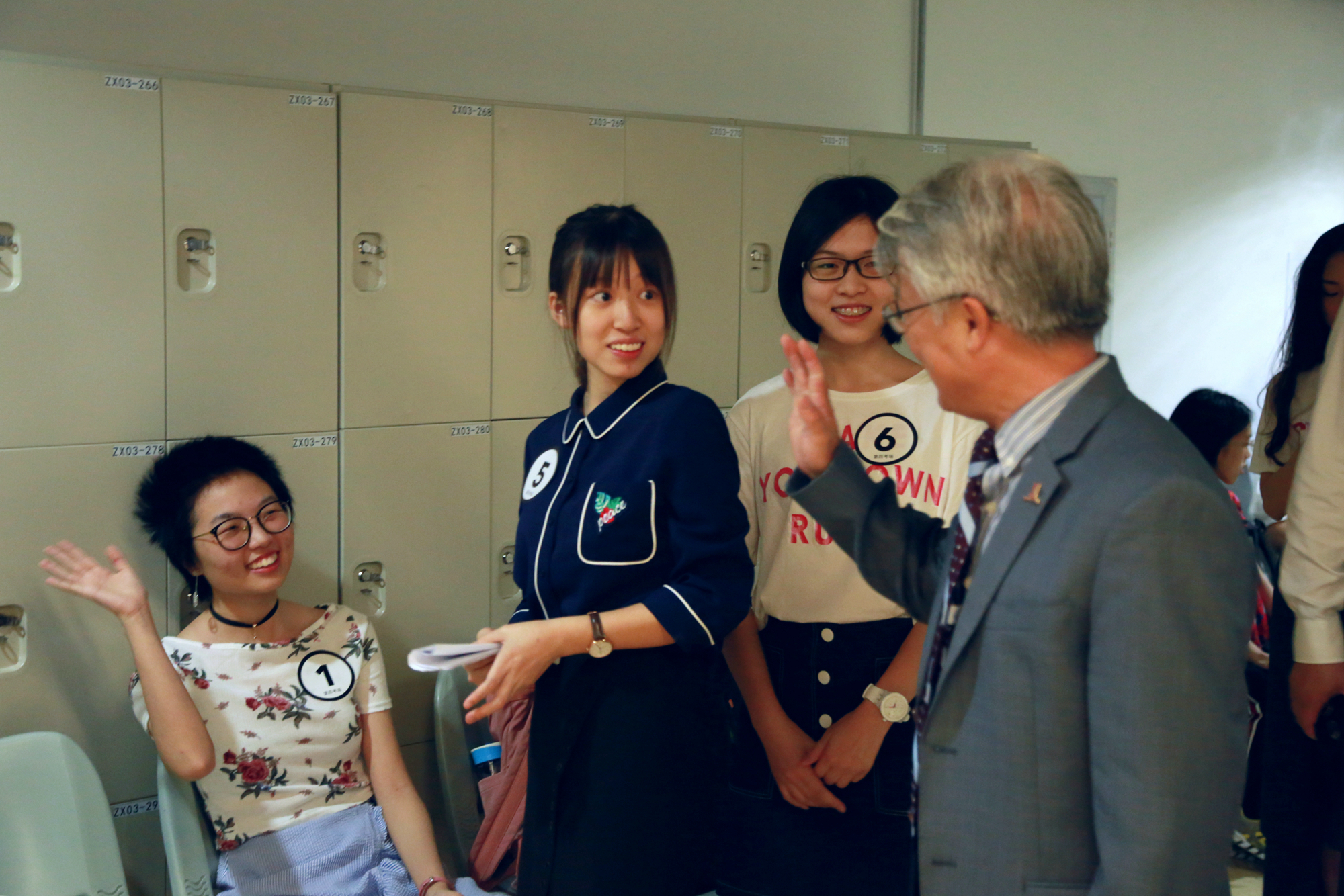
The further study situation and career prospects of the first undergraduate graduates have consolidated the confidence of future freshmen
In May of this year, the four-year-old CUHK-Shenzhen ushered in the first 271 bachelor-degree graduates. The proportion of students who choose to go abroad to pursue postgraduate studies is about 65%, and the proportion of those who choose to work immediately is about 35%.
As of the beginning of May, graduates who chose to continue further studies received offers from averagely more than three world-renowned universities. Yale University, Columbia University, Cornell University, Duke University, University of Chicago, Northwestern University, University of California, Berkeley, University of California, Los Angeles, University of California, San Diego, Carnegie Mellon University, University of Michigan, Boston University, New York University, Johns Hopkins University, Oxford University, London School of Economics, Imperial College, London, Bocconi University, University of Melbourne, University of Sydney, Kyoto University, Waseda University, National University of Singapore, Hong Kong University, Chinese University of Hong Kong and Hong Kong University of Science and Technology are very popular among the graduates with the largest number of admission notices. In addition, some students are directly admitted to doctoral programmes in famous universities in the world.
Graduates who have chosen to work have received offers from major domestic and foreign companies. Since the first graduates all come from the School of Management and Economics, the employment industries mainly consist of investment banks, banking, accounting, consulting, Internet, and fast moving consumer goods. Most of the offers came from China International Capital Corporation (CICC), HSBC, Bank of China Hong Kong Branch, Procter & Gamble, Coca-Cola, Strategy&, Tencent, Huawei, Deloitte, PWC, Ernst & Young, KPMG, JinRiTouTiao (Today's headlines), etc. According to the employment statistics at the beginning of May, the first graduates of The Chinese University of Hong Kong, Shenzhen are mainly employed in first-tier cities such as Beijing, Guangzhou, Shanghai, and Shenzhen, with an average annual salary of nearly RMB 140,000.
The parents of the Guangdong candidates stated that the University's unique teaching model and the English environment are the main reasons that attract them. It is hoped that their children will grow up in an international atmosphere. At the same time, parents have expressed that the excellent academic progress and career prospects of the first undergraduate graduates have made them more determined.

Student volunteers answering questions for parents

